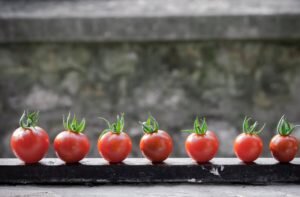Don’t Save the Best for Last
Use Your Good Stuff, Darn It
I come from what my grandmother used to call pioneer stock; a nice way of saying we were a notch up from poverty. Pioneer was code for frugally saving your few good possessions for some distant unspecified time and making do with less. I grew up wearing hand-me-down clothes and shoes from more well-off cousins, and our family saved the good china for special occasions and holidays. Typically, we squirreled our good things away for some unspecified visitor more worthy than us.
Old Habits Die Hard
That kind of early training is hard to shake, and even now, I look down and see I am wearing a pair of black pants that are 23 years old (but still serviceable!). I’ve tried to throw them out, but we have a lot of history. The concept of first-in, last-out, may have been invented by my forebears, who saved the best for last even with food. Could we take a bite from a delicious red tomato hanging on the vine in our garden? Of course not. Our dinner salad would contain the tomatoes and lettuce that had been sitting there for a while. "On the verge” as they say. So now, the freshly picked tomato and lettuce had to wait their turn to go bad.
Fresh is best
Food As Morale Factor
Looking back, my whole childhood was caught in the cycle of eating food slightly past its prime. When Glen and I moved onto a sailboat, that kind of thinking went overboard along with the rotten produce. Food is a huge morale factor on a boat, and meals the only punctuation of time—especially when crossing oceans. Preparing for long weeks at sea required overfilling produce in the cotton nets hanging from the galley ceiling. Dodging their swinging trajectory when the boat rocked and rolled made things interesting. When conditions quieted down I rotated the produce to ensure the stuff at the bottom didn’t get bruised and checked for rotting.
How fruit flies can smell rotting bananas in the middle of the ocean is still a mystery, and I always took their presence personally. As I sign I had failed. And that happened a lot because in warm latitudes, something was always getting mushy and had to be culled. At first it was hard to throw out the rotten piece of fruit of veggie, but shedding the poverty teachings of my childhood was essential to our morale and health on the boat.
Scarcity Resurfaces
Now we are back on a boat, traveling the Great Loop. Though closer to grocery stores than when crossing oceans, sometimes my best planning isn’t enough. Unfortunately, throwing food-gone-bad away rekindles the scarcity thinking of my childhood. Though it went against my frugal nature, yesterday I threw out an onion that was rotten in the middle instead of trying to use the less squishy parts. Instead, I reached for our last fresh onion, appreciating the crisp sound it made as I chopped it up for chili Glen was making. It might be awhile before I source more fresh onions, but when we do, the ones we eat will fresh, healthy and tasty. No matter how hard, I will pick fresher vegetables to eat instead of overly ripe ones on sale. I’m going to do it. I’m worth it. Now if I could only find someone who needs a great pair of well-used, but serviceable, size 8 black pants.


